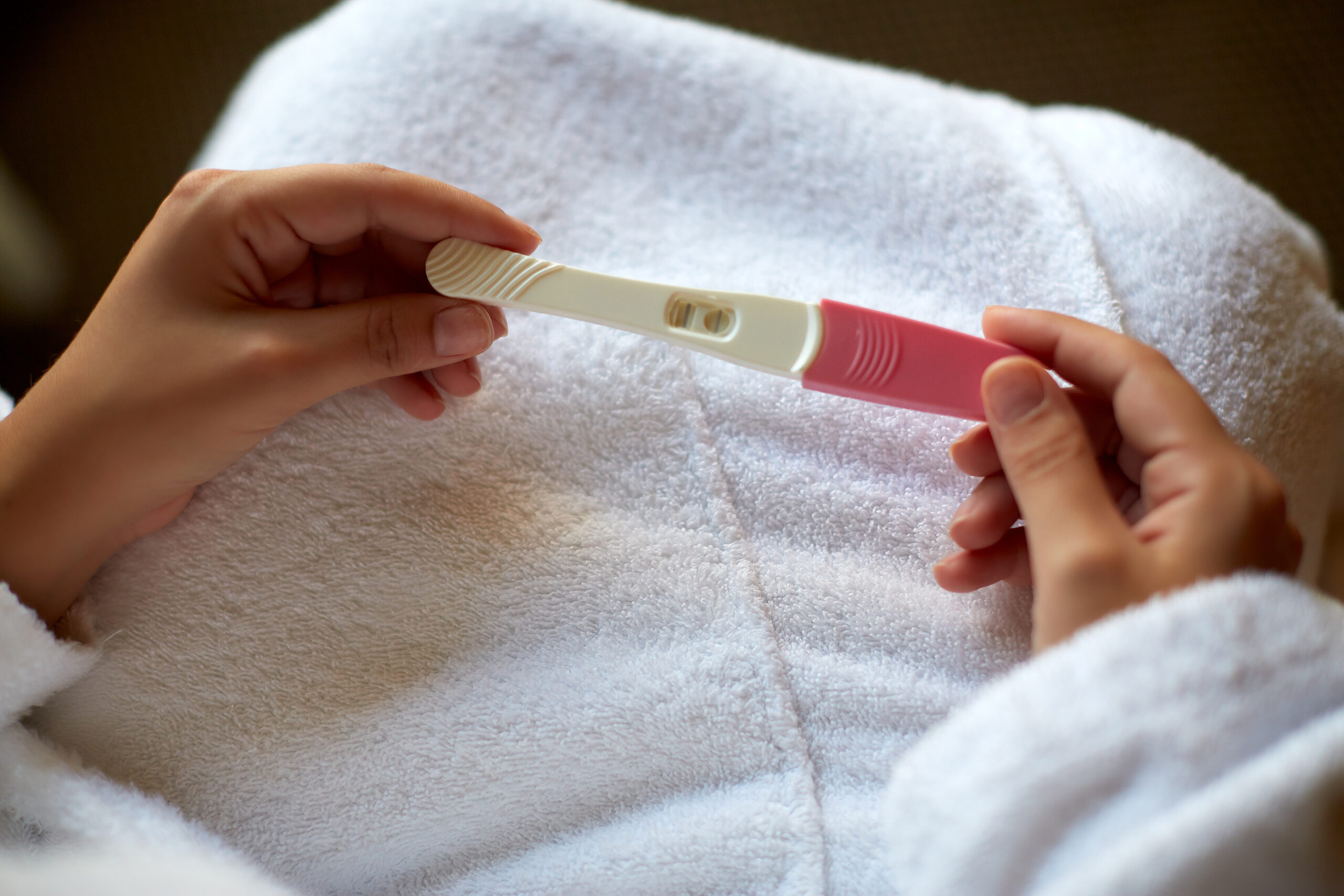If you’re considering an abortion, use this checklist first. It is important to have all the information you need to be empowered to make the best decision for you.
Following this “before an abortion checklist” could save you the pain, inconvenience, and cost of an abortion. We care about you.
Considering abortion? First, follow this “Before an Abortion Checklist.”
1. Make sure you’re pregnant
First, take a pregnancy test. Home pregnancy tests can sometimes be inaccurate.
At LifeSpring, we offer free in-clinic medical-grade pregnancy tests that are 99% accurate to help you be sure whether you are pregnant.

2. Make sure your pregnancy is viable
Even with a positive pregnancy, it is possible the pregnancy isn’t viable. A viable pregnancy is a developing embryo with a heartbeat. As many as 20% of pregnancies end on their own before 12 weeks. If a pregnancy ends in a natural miscarriage without you knowing, your pregnancy test could still be showing positive.
A urine pregnancy test by itself is not a reliable source to confirm viability. It is important to ensure your pregnancy is viable before you put your body through an unnecessary abortion.
Our free limited OB ultrasound can help confirm the viability of your pregnancy.
3. Check to see where your pregnancy is growing
Sometimes, a pregnancy may begin to grow outside of the uterus. This is called an ectopic pregnancy and can be life-threatening to you. It’s important to rule out an ectopic pregnancy as it can become more dangerous to your health as the pregnancy grows.
An ultrasound can check where your pregnancy is growing.
4. Find our how far along you are

An ultrasound helps determine your estimated gestational age (how far along you are in your pregnancy). Your gestational age influences what abortion option you may be eligible for and how much it will cost.
Taking the abortion pill can be taken up to 10 weeks gestational age. After 10 weeks, the pill is no longer an option for abortion.
It is not always accurate to use your last menstrual period (LMP) to figure out how far along you are. Many women end up being further along in their pregnancy than they realize. And some women are not as far along in their pregnancy when they have an ultrasound.
An ultrasound will confirm how far along you are in the pregnancy so you can know what your options are.
5. Get tested for Sexually Transmitted Infections (STIs)
Having an abortion with an undetected STI (also referred to as an STD) can increase your risk for complications during the procedure and may affect your future reproductive health.
Having an abortion while infected with chlamydia or gonorrhea (two of the most common STIs) can lead to Pelvic Inflammatory Disease (PID). PID can cause lifelong damage to your reproductive organs and lead to future ectopic pregnancies or infertility. [1]
Because most women do not have symptoms with chlamydia or gonorrhea, it is important to get tested before an abortion to rule out infection and protect your health. [2]
While some abortion providers give antibiotics prior to a surgical abortion, most providers do not test for chlamydia before prescribing the abortion pill.
LifeSpring offers free STI testing and treatment.
6. Discover all of your pregnancy options
No matter how scared you are, abortion is not your only option. Talk to a licensed medical professional about options and resources for your specific situation. You don’t have to rush to make a decision. Take the time to really understand both the short-term and long-term effects of each choice.
We are here for you to talk through your fears, concerns, and pregnancy options.

7. Understand specifics of abortion procedure risks and complications
You deserve to be fully informed. Before deciding, educate yourself on how each abortion procedure is performed and how it will affect your body and mind. Our medical professionals at LifeSpring can talk you through these specifics and make sure you feel confident in your pregnancy decision.
Schedule an appointment today.
Sources:
[1] Sørensen JL, Thranov I, Hoff G, Dirach J. Early- and late-onset pelvic inflammatory disease among women with cervical Chlamydia trachomatis infection at the time of induced abortion–a follow-up study. Infection. 1994 Jul-Aug;22(4):242-6. doi: 10.1007/BF01739907. PMID: 8002083
[2] Russo JA, Achilles S, DePineres T, Gil L. Controversies in family planning: postabortal pelvic inflammatory disease. Contraception. 2013 Apr;87(4):497-503. doi: 10.1016/j.contraception.2012.04.005. Epub 2012 May 29. PMID: 22652188; PMCID: PMC3744760

